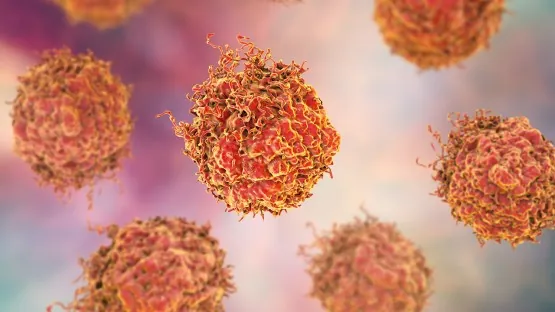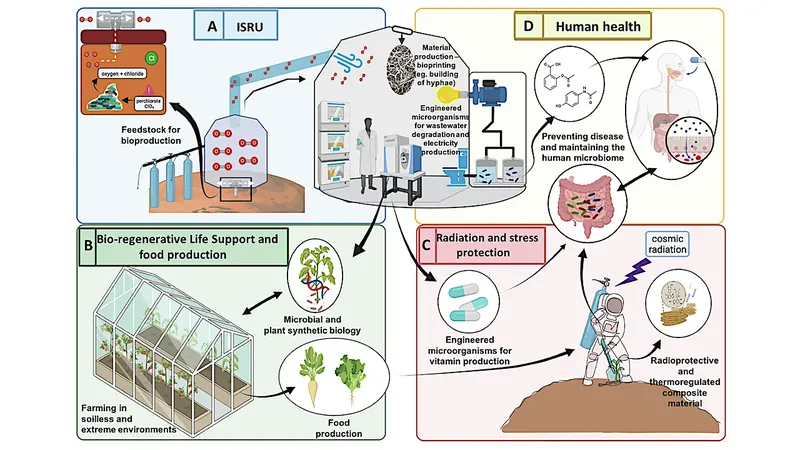
Revolutionary Prostate Biopsy Technique Halves Infection Risk—Is This the Future of Cancer Detection?
2024-09-23
Author: Arjun
Groundbreaking Clinical Trial Reveals New Technique
A groundbreaking clinical trial, spearheaded by researchers from Weill Cornell Medicine and NewYork-Presbyterian, has unveiled a new prostate biopsy method that drastically reduces the risk of infection.
Published on September 19 in JAMA Oncology, the study focused on the transperineal prostate biopsy technique. This innovative approach involves collecting prostate tissue through a needle inserted through the skin of the perineum—the area between the rectum and scrotum—using only local anesthesia. Unlike the traditional transrectal procedure, which carries a higher risk of infections, the transperineal method bypasses the rectal route entirely.
Study Findings and Results
The PREVENT (PReclude infection EVEnts with No prophylaxis Transperineal) trial, funded by the National Cancer Institute, was conducted at several prestigious institutions, including NewYork-Presbyterian/Weill Cornell Medical Center, NewYork-Presbyterian Queens, and NewYork-Presbyterian Brooklyn Methodist Hospital. The results were impressive: there were zero infections among the 382 men who underwent the transperineal biopsy, while six infections (1.6%) were recorded in the 370 men who had the traditional procedure. Notably, the men in the transrectal group had received preventive antibiotics, illustrating the superior safety profile of the transperineal method.
Expert Opinions on the New Method
Dr. Jim Hu, a leading urologic oncologist at Weill Cornell, stated, "Transperineal biopsy should be the new standard of care for prostate biopsy. It is equally effective at detecting cancer without the associated infection risks or the need for antibiotics."
Significance of the Findings
With around three million prostate biopsies conducted worldwide annually, this development is particularly significant. Although approximately 90% of these procedures in the U.S. are currently performed via the traditional transrectal method, it's been shown that 5% to 7% of patients experience post-biopsy infections, with 1% to 3% requiring hospitalization.
Antibiotic Use in Biopsy Procedures
In response to infection risks, the study implemented a tailored antibiotic regimen for men undergoing the transrectal biopsy. Instead of a broad-spectrum approach, antibiotics were customized based on cultures taken prior to the procedure. This focused method successfully reduced the infection rate in traditional biopsies, but the transperineal technique achieved a remarkable breakthrough by completely eliminating infections.
Addressing Antibiotic Resistance
Dr. Hu emphasized that this approach not only enhances patient safety but also helps combat the rising threat of antibiotic-resistant infections—an urgent public health issue.
Challenges to Adoption in the U.S.
However, barriers remain in making transperineal biopsies more widely accessible in the U.S. The lack of trained physicians and higher costs associated with the procedure present challenges. Though insurers currently offer the same reimbursement for both methods, the financial incentives for physicians to switch are limited.
Historical Precedent for Change
Yet, history may provide some hope. A similar transition occurred in Norway following a patient's death due to complications from a transrectal biopsy, leading to a nationwide adoption of the safer transperineal technique. Following this change, Norway saw a dramatic reduction in biopsy-related infections and fatalities.
The Future of Prostate Biopsies
"There is a compelling case to adopt this new method," Dr. Hu argued. "Change may take time, but as patient demand increases, we anticipate greater availability of this safer technique."
As more research supports the safety and efficacy of transperineal prostate biopsies, the medical community is beginning to recognize its potential as the gold standard in prostate cancer detection. It raises an important question: Is the future of prostate biopsies about to undergo a radical transformation?




 Brasil (PT)
Brasil (PT)
 Canada (EN)
Canada (EN)
 Chile (ES)
Chile (ES)
 Česko (CS)
Česko (CS)
 대한민국 (KO)
대한민국 (KO)
 España (ES)
España (ES)
 France (FR)
France (FR)
 Hong Kong (EN)
Hong Kong (EN)
 Italia (IT)
Italia (IT)
 日本 (JA)
日本 (JA)
 Magyarország (HU)
Magyarország (HU)
 Norge (NO)
Norge (NO)
 Polska (PL)
Polska (PL)
 Schweiz (DE)
Schweiz (DE)
 Singapore (EN)
Singapore (EN)
 Sverige (SV)
Sverige (SV)
 Suomi (FI)
Suomi (FI)
 Türkiye (TR)
Türkiye (TR)
 الإمارات العربية المتحدة (AR)
الإمارات العربية المتحدة (AR)